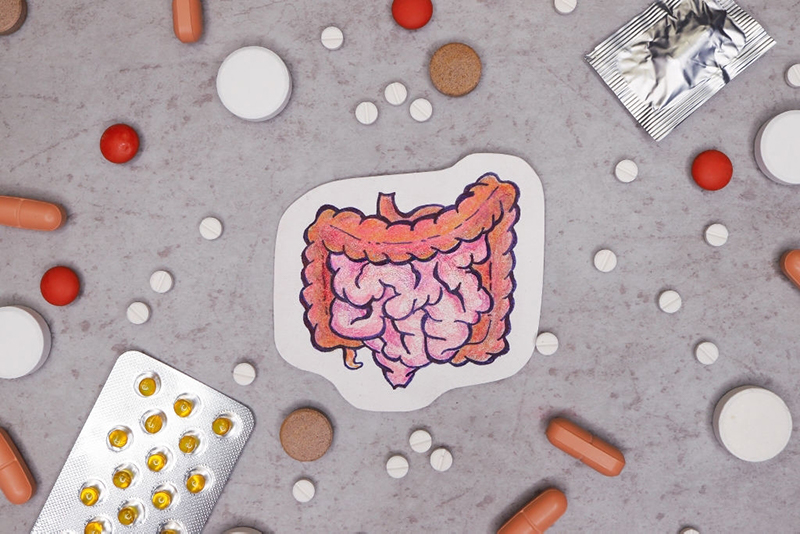There is debate over whether probiotics should be taken with antibiotics on a regular basis, and there is no simple yes or no response. probioticseverything.comprobiotic and antibiotic
A Cochrane analysis found that giving probiotics after antibiotics reduced diarrhea in children. A 2019 Italian study found that when participants were given probiotics following antibiotics, their gut flora took six months to recover to normal, compared to only three weeks for those who were not given any probiotics. probioticseverything.comprobiotic and antibiotic
Before a definitive statement can be made, more research is required.
What research backs up the use of probiotics alongside antibiotics?
A Cochrane review of 23 research (3938 people) looked into providing probiotics that contained one or more of the following ingredients: Lactobacilli spp., Lactococcus spp., Leuconostoc cremoris, Saccharomyces spp., or Streptococcus sp. Bacillus spp., Bifidobacterium spp., Clostridium butyricum, Lactobacilli spp., Lactococcus spp., Lactococcus spp., Lactoc
Probiotics have a substantial benefit over active, placebo, or no treatment control in 22/23 trials that reported on the incidence of antibiotic-associated diarrhea (8 percent in the probiotic group compared to 19 percent in the control group). There were no serious side effects associated with probiotics in any of the 16 trials (n = 2455) that reported them, with the most common ones being rash, nausea, gas, flatulence, abdominal bloating, abdominal pain, vomiting, increased phlegm, chest pain, constipation, taste disturbance, and low appetite. The authors came to the conclusion that probiotics had a protective effect against antibiotic-associated diarrhea. The NNT was 10 and the relative risk was 0.46 (95 percent CI 0.35 to 0.61). probioticseverything.comprobiotic and antibiotic
At 5 to 40 billion colony forming units/day, the authors thought Lactobacillus rhamnosus or Saccharomyces boulardii would be the best choice. They also stated that, while no serious adverse events were reported in the otherwise healthy children in these trials, serious adverse events have been reported in severely debilitated or immuno-compromised children with underlying risk factors (e.g., central venous catheter use), and that probiotics should be avoided in pediatric populations at risk for adverse events until more research is done.
What studies say that taking probiotics alongside antibiotics isn’t a good idea?
Researchers from the Weizmann Institute of Science in Israel and other institutions found that when participants were given an 11-strain probiotic medication for four weeks after taking antibiotics, their gut microbiota took longer to return to normal. Despite the probiotics’ ability to colonize the gut with beneficial bacteria, this was the case. The problem was that the additional bacteria and yeast strains prevented the gut microbiome from reverting to normal for the duration of the six-month research. probioticseverything.comprobiotic and antibiotic
The gut microbiome of those who were not given probiotics, on the other hand, reverted to normal within three weeks of stopping antibiotics. The scientists did note, however, that this study only looked at one type of probiotic, and that a different probiotic might be more beneficial in people on various antibiotics. They did, however, caution out that the study’s findings suggest that taking a probiotic following an antibiotic may not be useful.
More research is needed to see if other approaches to strengthening the gut microbiota, such as fermented foods (such as sauerkraut and kimchi) or fecal transplantation, are effective. Autologous fecal transplantation, which includes collecting and freezing stool samples before starting antibiotics, has been demonstrated to restore the gut microbiome within eight days after the feces was reintroduced to the gut following antibiotic treatment. The gut flora in the group that did not get fecal transplantation took 21 days to restore to normal. However, autologous fecal transplantation is currently only approved for persons who have C. difficile colitis, a kind of colon inflammation caused by the bacteria Clostridium difficile.
What is the reason for using probiotics in conjunction with antibiotics?
Antibiotics might kill healthy bacteria in your gut if you use them to treat an infection.
Probiotics can be taken orally to correct any flora imbalances in the gut or urogenital tract. This is why probiotics are used in conjunction with antibiotics. Antibiotic-induced diarrhea can also lead to an infection with Clostridium difficile, or C. difficile, a germ that can cause serious colon inflammation (colitis). probioticseverything.comprobiotic and antibiotic
Experts believe that if you get stomach cramps, gas, or diarrhea after taking antibiotics, taking a probiotic supplement may help to alleviate or possibly prevent these symptoms. A probiotic will also reintroduce beneficial bacteria into your digestive tract that have been destroyed or whose numbers have been lowered by the antibiotic. probioticseverything.comprobiotic and antibiotic

When taking antibiotics, how should I take probiotics?
If you opt to take a probiotic with an antibiotic, start it on the same day as the medication, but not at the same time. After taking your antibiotic, wait at least two hours before taking your probiotic. probioticseverything.comprobiotic and antibiotic
On an empty stomach, probiotics are normally taken twice a day. They should be continued for at least a few weeks after your antibiotic treatment is ended, though some people take probiotics on a daily basis to not only aid digestion but also to boost their immune system and improve nutritional absorption. probioticseverything.comprobiotic and antibiotic
If you want to take probiotic supplements, look for a high-quality probiotic from a reputable brand that contains at least one of the following strains at 5 to 40 billion colony units per day: Lactobacillus rhamnosus, Saccharomyces boulardii, or Bifidobacterium sp.

